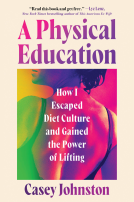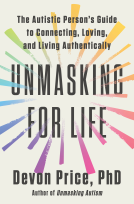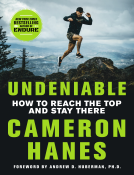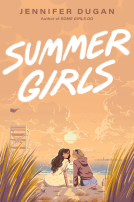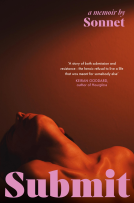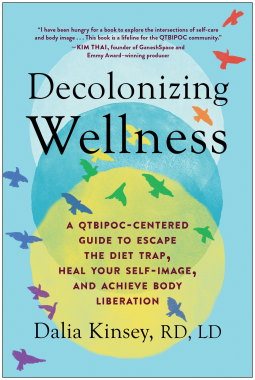
Decolonizing Wellness
A QTBIPOC-Centered Guide to Escape the Diet Trap, Heal Your Self-Image, and Achieve Body Liberation
by Dalia Kinsey
This title was previously available on NetGalley and is now archived.
Send NetGalley books directly to your Kindle or Kindle app
1
To read on a Kindle or Kindle app, please add kindle@netgalley.com as an approved email address to receive files in your Amazon account. Click here for step-by-step instructions.
2
Also find your Kindle email address within your Amazon account, and enter it here.
Pub Date Feb 08 2022 | Archive Date Jul 11 2022
Talking about this book? Use #DecolonizingWellness #NetGalley. More hashtag tips!
Description
"The author offers an empowering perspective for people whose identities are often marginalized in the health and wellness industry." —Manhattan Book Review
Become the healthiest and happiest version of yourself using wellness tools designed specifically for BIPOC and LGBTQ folks.
The lack of BIPOC and LGBTQ representation in the fields of health and nutrition has led to repeated racist and unscientific biases that negatively impact the very people they purport to help. Many representatives of the increasingly popular body positivity movement actually add to the body image concerns of queer people of color by emphasizing cisgender, heteronormative, and Eurocentric standards of beauty. Few mainstream body positivity resources address the intersectional challenges of anti-Blackness, colorism, homophobia, transphobia, and generational trauma that are at the root of our struggles with wellness and self-care.
In Decolonizing Wellness: A QTBIPOC-Centered Guide to Escape the Diet Trap, Heal Your Self-Image, and Achieve Body Liberation, registered dietitian and nutritionist Dalia Kinsey will help readers to improve their health without restriction, eliminate stress around food and eating, and turn food into a source of pleasure instead of shame. A road map to body acceptance and self-care for queer people of color, Decolonizing Wellness is filled with practical eating practices, journal prompts, affirmations, and mindfulness tools. Ultimately, decolonizing nutrition is essential not only to our personal well-being but to our community’s well-being and to the possibility of greater social transformation.
This is a body positivity and food freedom book for marginalized folks. It’s a guide to throwing out food rules in exchange for internal cues and adopting a self-love-based approach to eating. It’s about learning to trust our bodies and turning mealtime into a time for celebration and healing.
It’s also a love letter to those of us who struggle with our bodies and a gentle plea for us to do the work it takes to accept, trust, and love ourselves.
Available Editions
| EDITION | Other Format |
| ISBN | 9781637740309 |
| PRICE | $15.95 (USD) |
| PAGES | 176 |
Featured Reviews
 Ashley P, Reviewer
Ashley P, Reviewer
Decolonizing Wellness by dietitian Dalia Kinsey aims to help QTBIPOC (Queer, Trans, Black, Indigenous, People of Color) folks reject diet culture and restrictive ideas about bodies and food in order to find greater self-love and self-acceptance. The author, who identifies as a genderqueer, pansexual person of colour, wrote this book to fill a gap in resources on body positivity and food freedom for people with marginalized identities.
While I’m not a member of the book’s intended audience, I was interested in the idea of wellness through a social justice lens, plus I like to spread the word about resources for marginalized groups. And I’m anti-diet culture, and I thought the author had a great perspective on that.
The book begins by addressing the significant negative health effects of stress related to racism, oppression, and being regularly faced with microaggressions. The author characterized systemic oppression as a “deadly preexisting condition.”
The author calls out diet culture, laying out reasons why “dieting should be avoided like the plague.” She explains the harms that dieting can cause, and addresses the issue of predatory marketing and the role of the almighty dollar in driving the diet industry.
The book also addresses the moralization of fatness and the way health disparities in communities of colour get blamed on the “obesity crisis” and people’s health behaviours. She described the attitude among the dominant culture that people of colour are “just so hopelessly not white that they struggle to fully adopt Whole Foods as the solution to all their problems.” That made me laugh, but I think that the "Whole Foods is the answer" kind of attitude also feeds into other problems like orthorexia.
Binge eating and the use of food to self-soothe are framed as stress responses to the disease of systemic oppression. The author advocates for a very different approach from dieting and trying to target fatness; instead, she advocates for getting in touch with your body and improving your relationship with food. Eating is presented as a form of self-care, and the author encouraged mindful eating. There’s also a chapter on trusting your body that explores getting to know how your body signals hunger and fullness, as well as differentiating between physical and emotional hunger.
The book also addresses body shame and offers a variety of strategies to help to liberate yourself from that shame, including embracing joyful movement.
There are chapters that address prioritizing pleasure and developing self-love, all of which are presented in the context of dealing with oppression and internalized invalidating messaging. The author explains that there’s “no magical tool for dealing with pain that doesn’t involve confronting and experiencing your feelings,” and encourages finding a therapist who celebrates your marginalized identities.
The final chapter focuses on honouring your ancestors’ dreams of freedom for their descendants by embracing your racialized identity and rejecting white beauty standards.
The book has “journaling break” sections interspersed throughout, with prompts for self-reflection. The author emphasizes that making changes isn’t just about thinking; it’s about following through with actions.
While some books bout wellness can be kind of fluffy, there’s nothing fluffy at all about this book. It acknowledges and validates that readers are faced with a lot of difficult experiences, while at the same time offering hope that liberation is possible. The author challenges a lot of conventional wisdom around what is expected of people’s bodies and what it means to be healthy, and I think it offers a very liberating perspective for people feeling oppressed by that kind of messaging.
The book’s primary audience is QTBIPOC folks, but I think there’s a lot of good stuff here for anyone who feels like oppression related to marginalized identities has affected their relationship with food and their bodies. It was a really interesting read.
I received a reviewer copy from the publisher through Netgalley.
I have a complicated relationship with food and my body, and hoped to learn things from this book that would both help me approach my own relationship to food better and also to continue to unpack harmful food ideologies that are rooted in racism and misogyny. Dalia Kinsey is a black nutritionist, and this book work reflects both lived experience and expertise. Decolonizing Wellness not only fills an important need but also does so in a way that is accessible and kind. I read an ARC of this book through NetGalley, and would definitely recommend purchasing the book when it comes out in two weeks.
I loved this book! I loved that it offered action based journaling prompts and guides that were accessible, inclusive, and presented in a way that was not pretentious, too schmaltzy, or hard to understand. This is a great read for folks who are fans of "The Maintenance Phase" podcast and want to dig deeper about the lies the dieting industry has been serving us.
After having multiple unsettling (and perhaps unproductive) conversations with friends about weight gained during the pandemic and how we do not feel at home in our bodies, it was refreshing to be reminded that a book like this can exist to help me feel at home in my body again and to approach food in a way that is healthy without going on a metabolic damaging diet. It also helped me understand how my gender identity has failed to serve me in how I view my body.
As a white passing cis-woman, I understand and love that this book was not written primarily for me but for folks of all identities (particularly for queer black people and queer people of color). I haven't read many books written with this kind of inclusivity in mind. It was very helpful in developing my understanding in how to understand and regard bodies in writing and conversation. I'm so used to reading books presented in a heteronormative manner that it boggled my mind that I am 32 years old and this was my first book that showed me these topics addressed inclusively.
Readers who liked this book also liked:
Julie Demyanovich
Crafts & Hobbies, Entertainment & Pop Culture




